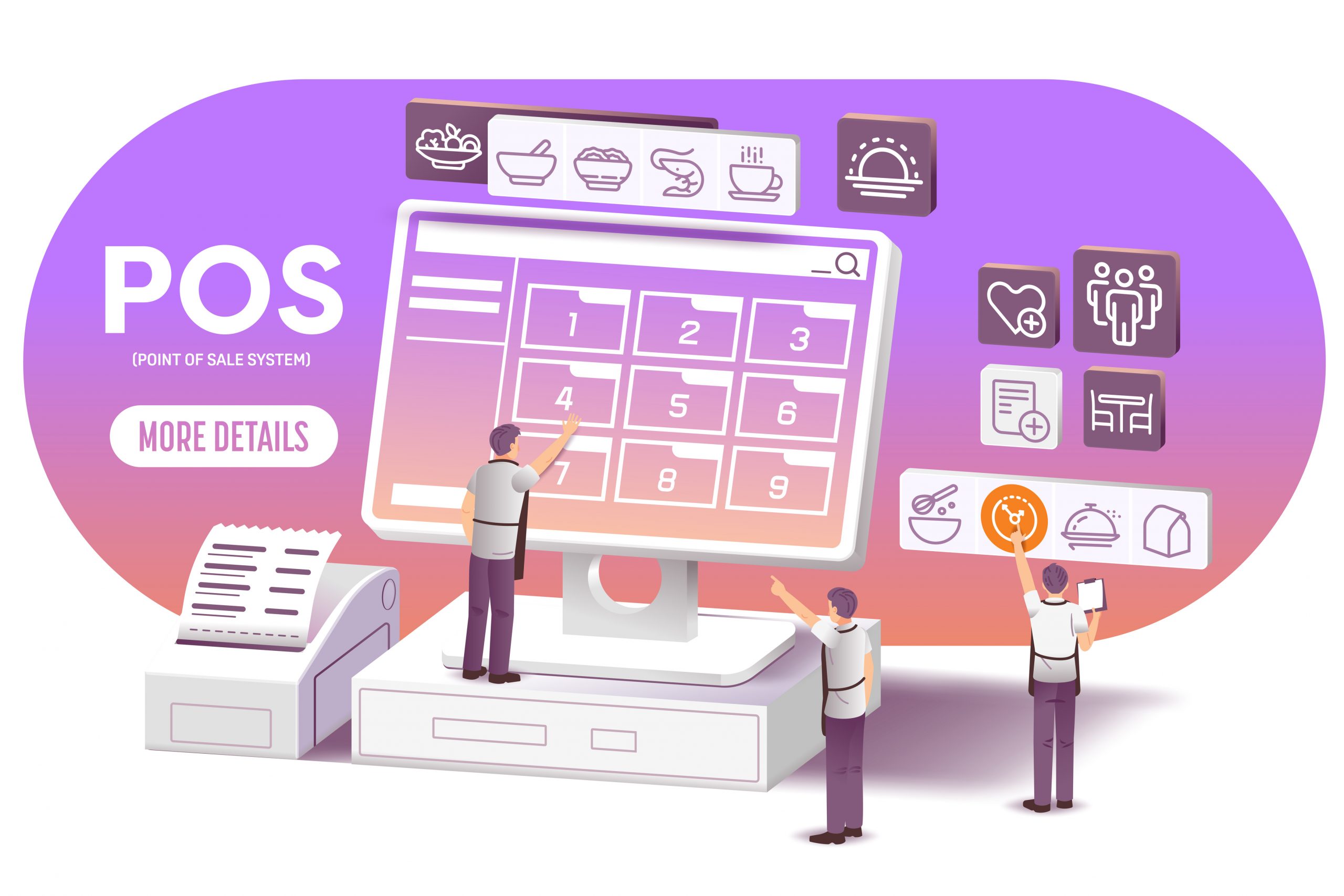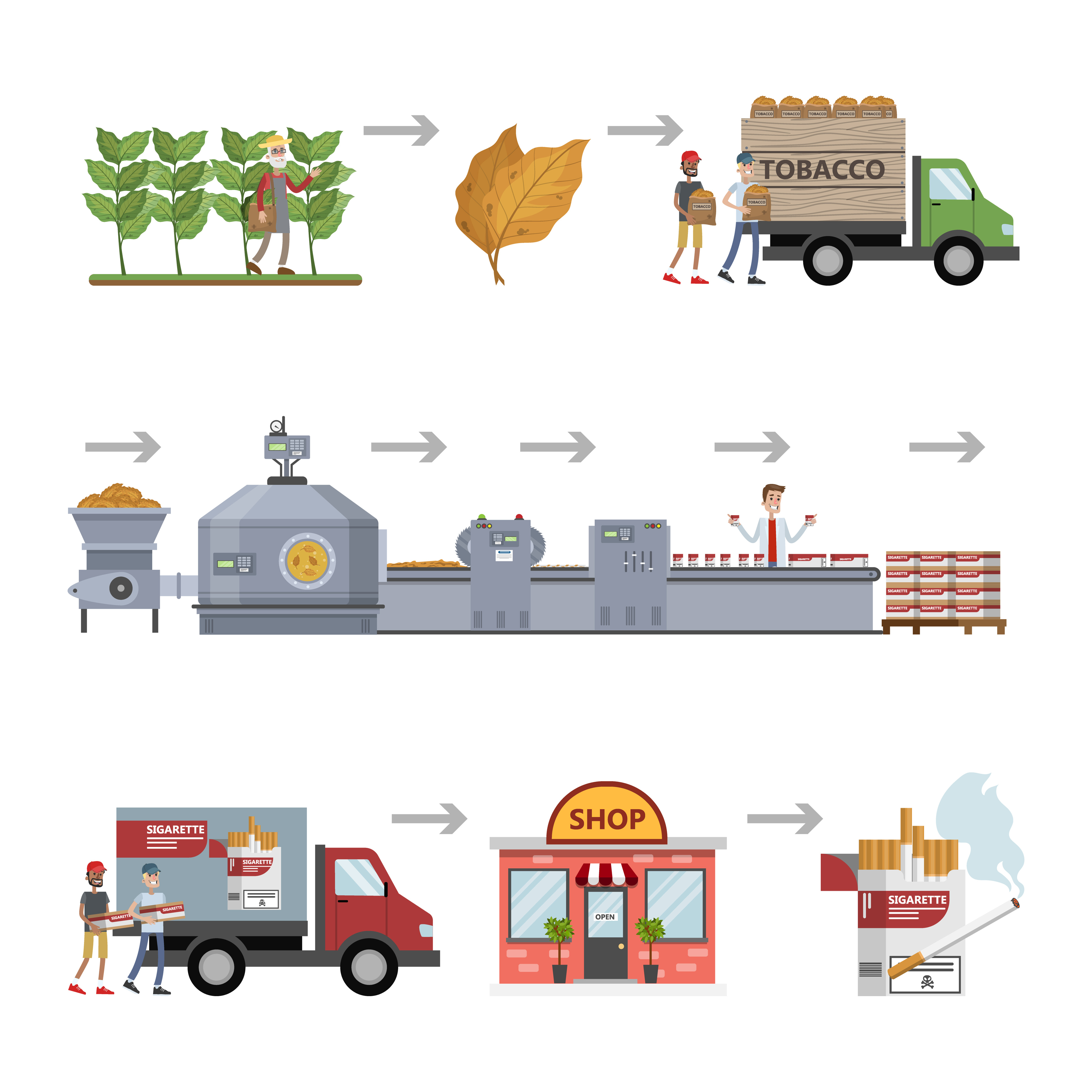No matter where you are in your purchasing journey, it doesn’t hurt to have some advice along the way. If you’re in search of a point of sale (POS) system for your tobacco store, you’re in luck!
Whether POS Nation is the best choice for your small business or not, our team has put together a buyers’ guide to help you make important decisions about your point of sale solution.
WHAT DO YOU WANT YOUR POS SOFTWARE TO DO?
Many retailers aren’t sure why they want a point of sale system. Before talking to providers, we recommend doing a quick brainstorm exercise to figure out what fea- tures are most important to you. As you know, tobacco stores have needs that other retail shops do not.
Start thinking about what you want a POS software to do for your tobacco store and write it all down. A basic point of sale system runs transactions — start from there and then add the features you want. Think about the core functions of your business and the workflow around them.
As a point of sale provider who’s worked with thousands of tobacco shops, we highly recommend POS software that comes equipped with the following features:
Case Breaking
— A carton-pack inventory tracking feature is vital to smoke shops. If you sell cigars, for example, you’ll likely want to break boxes into single cigars for sale. With a less sophisticated POS system, or manual inventory tracking, case breaking can be a literal headache. Instead of dealing with unnecessary con- fusion and errors, make sure your POS solution has a powerful case break feature for tracking inventory.
Age Verification
— As you know, verifying customers’ birth dates is required when selling age-restricted products. The right point of sale software can make this task easier and safer. In the past, tobacco store cashiers would enter the birth date on their customer’s license to complete a transaction. However, with fake IDs being so common, your business could still be at risk of making an underage sale. Modern age verification features
allow you to scan or swipe your customer’s driver’s license to verify whether they’re 21 or older. Not only is this quicker than the traditional method, but an ID scanner will also pick up if the ID used is fake or not.
Label Creation and Printing
— Cigars can be a barcoding nightmare. The case itself may have a barcode, but each individual cigar does not — which means it’s up to you to la- bel and track each product. Find a point of sale solution that allows you to create and print custom barcode labels made to fit cigars and other products you want to sell individually. Trust us, this feature makes a world of a difference.
Scan Data Reporting with Mix and Match Pricing
— For retailers who sell cigarette products, this feature can help in- crease sales and move inventory by grouping your products into enticing deals. Multi-pack discounts are automatically applied at checkout when items that qualify for the promotion are scanned. Additionally, this feature makes it easier than ever to track manufacturer discounts and produce a tobacco report. A scan data program can make your business thousands through rebates!
Cash Discounting
— A cash discount program is a method of implementing a service fee to customers who pay with a cred- it card, while providing a discount to those who pay with cash. Utilizing this feature can literally bring your payment processing costs down to $0 by passing credit card fees on to customers. Cash discounting is worth looking into!
Kit Building
— If you sell vape products, offering kits with a vari- ety of options for customers to choose from not only builds loy- al return customers, but also increases sales. A kit building fea- ture allows you to program items as a bundle in your software, making the selection and checkout of these products a breeze. Easily group a vaporizer pen with liquid cartridges, a charger, and any other accessories you want for first-time buyers.
Customer Loyalty
— Having a loyalty program feature provides opportunities to keep in touch with customers and customize their experience. Store their mailing address, phone number, email, and other information in their profile so you can reach out once in a while. You can also track each customer’s transactions so you know exactly which cigar brand they purchased last time they were in. Then, when the time comes to send coupons, you can use each customer’s purchase history to customize the pro- motions you send them. This makes customers feel special, and it makes them more likely to come back to your store for a dis- count on a product they like!
Sales Reporting and Analysis
— This feature is necessary for all small businesses, but it’s even more important for a tobacco shop owner. Make sure the POS solution you’re considering can easily generate all of the specific reports you need. You want to be able to customize your reports and export them into an Excel spreadsheet (or any format you and your vendors prefer). Powerful reports can help you track sales, identify what’s selling and what isn’t, and make important decisions on every aspect of your business.
Ask your employees which features they’d like to have, too. Naturally, small workflow problems can build up over time and go undetected by management. Be sure to collaborate with the people who use your system on a regular basis.
WHAT EQUIPMENT DO YOU NEED?
The most basic point of sale setup includes an all-in-one computer, receipt printer, barcode scanner, and cash drawer. A barcode printer, customer display, and pinpad are commonly added to a tobacco store setup.
Before deciding what you need, make sure you’re familiar with each piece of hard- ware and what purpose it serves.
Receipt Printers
Direct thermal technology is used to print receipts. Basically, this means that the text is burnt into the paper. Receipt printers are fast, quiet, and don’t require any ink rib- bon refills. One should accompany each station.
Barcode and ID Scanners
Scanners read barcodes using single-line or omnidirectional scanning technology. Single-line is less expensive, but barcodes have to be lined up correctly or they won’t scan. While omnidirectional costs more, barcodes can be read at any angle. Scanners can also be wireless and programmed to scan IDs for age verification.
Cash Drawers
Technology is always changing, but the one constant in the POS world is a strong metal box for securing cash. A cash drawer should be part of every station you use to complete transactions.
Barcode Printer
If you sell merchandise that doesn’t come with barcodes, like individual cigars that were part of a box, having a barcode printer allows you to print custom labels in a variety of shapes and sizes. While non-barcoded items can be entered into a POS touchscreen menu, the checkout process can be much more efficient with a printed barcode.
Customer Displays
Customer displays, or pole displays, allow customers to see the item and price being rung up by the cashier. Displays come with colored LCD screens or dot matrix (“old school” black and green) and can be placed on a pole or mounted to the back of the POS system.
Pinpads
You need a pinpad to accept credit cards and debit cards. If your customers regularly spend more than $20 in a transaction, allowing chip and PIN payments may help lower your total credit card processing fees. Pinpads can also help you accept mo- bile and contactless payments.
Not seeing what you’re looking for? There are many more add-ons than what we highlight above. To dive in deeper, check out our guide to point of sale hardware!
HOW MUCH DO YOU KNOW ABOUT THE SOLUTION?
At this point, you should have a good idea of the features and hardware you want for your tobacco shop. Now it’s time to start talking to point of sale providers and demo- ing software.
Before or after your demo, be sure to mention all of your business’ needs to your sales rep. Tell them about your budget, your workflow, how you want your POS sys- tem set up, and what you’ll need from their team.
Here are some must-ask questions:
- How much am I paying up front and/ or monthly? Can you outline all of the ongoing fees associated with your proposal?
- How many tobacco shops have you worked with? How familiar are you with the industry?
- Are your support technicians your employees or are they outsourced? Is your support team available 24/7?
- Do you provide one-on-one training? Is training an additional cost or limit- ed? What other resources do you of- fer?
- What services do you offer to help me get up and running? Can you import my inventory? Do you offer on-site installation?
- Is this a complete solution, or do I need to pay extra for additional features that I need?
Asking these questions ensures that your needs are met, and that the company you’re considering is the right fit. You don’t want to invest in a restaurant POS solution when you’re running a smoke shop, and you don’t want to partner with a team that doesn’t provide tech support when you’re new to retail software.
ARE YOU READY TO MAKE THE MOVE?
Finally, think about your timeline. Are you a new business owner looking to open shop in six months to a year from now? Or are you currently managing a tobacco shop and you’re ready to upgrade as soon as possible?
Be transparent about your ideal timeframe. You don’t want to get pushed into making a decision too quickly if you’re not ready, and you certainly don’t want to wait too long if your current POS solution is struggling to keep up.
Every point of sale system has its strengths and weaknesses. Compare providers, weigh the pros and cons, look at customer reviews, and take the time to think about what’s most important to you and your small business.
If you’ve followed all of the steps in this tobacco shop buyers’ guide and you’re confident you’ve found the perfect solution, make the move!
Complete the purchase, set up your POS system, get trained, and start running your business better than ever.

